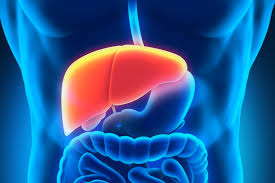The Foods That Fuel Cancer: What You Need to Know

Introduction
Cancer is increasingly recognized as a preventable disorder, primarily driven by the modern lifestyle's impact on our biology. Emerging evidence suggests that cancer's origins are deeply rooted in metabolic dysfunction rather than being solely a genetic anomaly. This perspective shifts the focus towards how diet and lifestyle choices can significantly influence cancer development.
- Metabolic Disorder: Cancer can be seen as a metabolic disorder where cells are deprived of proper energy regulation due to faulty mitochondrial function.
- Modern Lifestyle: Today's dietary habits and sedentary lifestyles contribute heavily to metabolic imbalances, creating an environment where cancer thrives.
Understanding the foods that fuel cancer and adopting preventive measures can potentially reduce its incidence. By focusing on maintaining healthy mitochondria through informed lifestyle choices, such as balanced nutrition and regular exercise, one can effectively target the metabolic underpinnings of cancer, emphasizing prevention over treatment.
Understanding Cancer and Its Origins
The current global cancer epidemic is alarming, with death rates escalating rapidly. In the United States alone, nearly 2 million new cancer cases are reported annually, resulting in approximately 1,700 deaths per day. These statistics paint a grim picture of a disease that shows no signs of slowing down, with projections indicating a worsening scenario by 2050.
What is Metabolic Therapy?
Metabolic therapy emerges as a promising approach in this landscape. This therapy focuses on treating cancer by targeting its metabolic processes rather than traditional methods like chemotherapy or radiation. It has shown effectiveness in extending the lives of terminal cancer patients, suggesting a potential shift in treatment paradigms.
The Role of Fermentation Energy Dependency in Cancer
A critical aspect shared by all cancers is their fermentation energy dependency. This common pathophysiological issue highlights how cancer cells rely on ancient fermentation pathways for energy production. Unlike healthy cells that utilize oxygen for efficient energy conversion, cancer cells exhibit defective mitochondria that drive them to produce lactic acid and succinic acid even in the presence of oxygen. This unique characteristic underscores the metabolic dysfunction at the heart of cancer development.
Why Understanding Cancer's Origins Matters
Understanding these origins and mechanisms is key to developing more effective prevention and treatment strategies. The emphasis on metabolic therapy offers hope for better management of this disease, aiming to address its root causes rather than just alleviating symptoms. As research continues to explore these pathways, there is potential for significant advancements in how we approach cancer treatment and care.
The Role of Lifestyle in Cancer Development
Cancer rates show a stark contrast between traditional societies and those leading modern lifestyles. Traditional diets, characterized by low-carbohydrate intake and whole foods, have been associated with significantly lower cancer incidences. In contrast, the rise of modern diets rich in sugars and processed foods correlates with an increase in cancer cases. This dietary shift underscores the impact of high blood sugar levels on cancer risk.
The Impact of Diet on Cancer Risk
High blood sugar levels fuel cancer cell growth, providing the necessary energy for their rapid proliferation. Conversely, maintaining low blood sugar through dietary choices can slow down this process. Emphasizing a diet low in carbohydrates reduces glucose availability, which is a primary energy source for cancer cells utilizing fermentation pathways due to defective mitochondria.
The Role of Exercise in Cancer Prevention
Exercise plays a crucial role in modulating cancer risk by impacting glucose metabolism. Regular physical activity helps lower blood sugar and glutamine levels, two key nutrients that cancer cells rely on for growth. By reducing these fuels, exercise effectively starves cancer cells, limiting their ability to thrive.
A lifestyle incorporating traditional dietary patterns along with regular exercise not only supports overall health but also serves as a preventive measure against cancer development.
Metabolic Dysfunction in Cancer Cells
The heart of cellular energy production lies within the mitochondria, often referred to as the powerhouses of the cell. These organelles perform a crucial role in converting oxygen and glucose into usable energy through a process known as oxidative phosphorylation. This efficient mechanism allows healthy cells to sustain their normal functions and maintain physiological balance.
The Shift from Oxidative Phosphorylation to Fermentation
In cancer cells, this finely tuned system becomes corrupted. Instead of relying on oxidative phosphorylation, cancer cells shift towards ancient fermentation pathways for their energy needs. This process involves generating energy without oxygen, an adaptation thought to arise from defective mitochondria. Cancer cells produce lactic acid and succinic acid even when oxygen is available, highlighting a fundamental metabolic defect shared across various cancer types.
The Gradual Corruption of Mitochondrial Systems
This gradual corruption of mitochondrial systems is not an instantaneous event but a slow degeneration that disrupts normal cellular respiration. As cancer progresses, these dysfunctional mitochondria lose their capability to efficiently manage energy production through oxidative means. Instead, they become increasingly reliant on fermentable fuels like glucose and glutamine.
Potential Therapeutic Strategies
Understanding this metabolic dysfunction sheds light on potential therapeutic strategies aimed at targeting cancer cell metabolism. By restricting glucose and glutamine intake while promoting alternative fuel sources—such as ketones—you can potentially starve cancer cells without causing toxicity to healthy cells. This approach suggests a promising avenue for managing cancer growth by addressing its underlying metabolic abnormalities.
The Importance of Mitochondrial Health Research
Continued research into mitochondrial health and its impact on cancer cell metabolism may pave the way for innovative treatments that focus on restoring normal mitochondrial function rather than solely targeting genetic mutations.
The Impact of Diet on Cancer Cell Metabolism
Adopting a ketogenic diet can offer significant benefits, particularly for brain cancer patients. This approach is rooted in Otto Warburg's findings, which highlight that cancer cells thrive on glucose and are less adept at utilizing ketones as a fuel source. By shifting to a low-carb diet, individuals can effectively reduce the availability of glucose, thereby depriving cancer cells of their preferred energy source.
How Ketones Support Healthy Mitochondria
Ketones emerge as an efficient fuel for healthy mitochondria. These water-soluble breakdown products of fatty acids are produced by the liver during fasting or when following a low-carb diet. They require less oxygen than glucose or fatty acids, making them an ideal energy source for maintaining mitochondrial health. This efficiency underscores the potential of ketones in supporting cellular function while limiting cancer cell growth.
The Role of Glucose and Glutamine Restriction in Cancer Management
To manage cancer without toxicity, strategies such as glucose and glutamine restriction become crucial. Cancer cells rely heavily on these fermentable fuels for rapid growth and survival. Restricting their availability by transitioning to fatty acids and ketone bodies not only impedes cancer progression but also minimizes adverse effects associated with conventional treatments like chemotherapy and radiation.
The Potential Impact of Dietary Strategies on Cancer Progression
By prioritizing dietary strategies that focus on enhancing mitochondrial health and restricting cancer-fueling nutrients, there is potential to significantly impact cancer progression. This approach not only aligns with modern research but also offers a non-toxic alternative to traditional treatment methods, emphasizing the importance of diet in comprehensive cancer care.
In addition to dietary changes, managing pain effectively during this challenging time is also crucial. Exploring options for effective pain relief and management can provide significant comfort to patients undergoing treatment.
Foods That Fuel Cancer Growth
When considering the foods that promote high glucose levels, sugar-rich and processed foods are at the forefront. These foods act as fermentable fuels for cancer cells, providing them with the energy needed to thrive. Processed foods, often laden with hidden sugars and refined carbohydrates, can significantly elevate blood glucose levels. This environment is ideal for cancer cell proliferation, as these cells rely heavily on glucose for their energy needs.
The Role of High Glycemic Index Foods
High glycemic index (GI) foods play a pivotal role in tumour growth. Foods with a high GI cause rapid spikes in blood sugar and insulin levels, creating a fertile ground for cancer development. Examples of such foods include white bread, sugary cereals, and pastries. These dietary choices can accelerate tumor growth by supplying cancer cells with an abundance of glucose through fermentation pathways.
The Power of Low-GI Whole Foods
In contrast, adopting a diet rich in low-GI whole foods offers a preventive approach to diet. Whole foods such as leafy greens, nuts, seeds, and legumes release glucose more gradually into the bloodstream. This slower release helps maintain stable blood sugar levels and reduces the fuel available to cancer cells.
Supporting Health with All-Natural Ingredients
Moreover, incorporating all-natural ingredients into your diet can further support overall health. These nutrient-dense options not only limit the availability of fermentable fuels for cancer cells but also contribute to an internal environment less conducive to their survival and proliferation. By choosing these healthier alternatives over processed ones, you play a crucial role in cancer prevention while enhancing your body's natural health.
Challenges in Cancer Treatment Approaches
The fight against cancer is not just a battle against the disease but also against established treatment methods. Pharmaceutical companies often resist alternative treatments due to financial interests, making it difficult to explore new and innovative approaches. The large amounts of money invested in traditional therapies like chemotherapy and radiation create a significant obstacle to accepting new ways of treating cancer.
Limitations of Traditional Treatments
While traditional chemotherapy and radiation therapies are important in treating cancer, they have significant limitations:
- These treatments can be extremely hard on the body.
- They sometimes only provide slight improvements in survival rates.
- The primary focus has been on directly attacking cancer cells, often ignoring the underlying issues with metabolism.
The Importance of Mitochondrial Health
It is essential to shift our focus towards understanding mitochondrial health. Viewing cancer as a disease related to mitochondrial metabolism opens up possibilities for treatment options that are less toxic and more sustainable. This perspective emphasizes the importance of maintaining healthy mitochondria through dietary choices and lifestyle changes, which could potentially reduce the need for conventional methods that may offer limited benefits.
Rethinking Cancer Treatments
To rethink cancer treatments, we must acknowledge the influence of modern diets—specifically how certain foods promote cancer growth—and incorporate this understanding into comprehensive care strategies. This shift in thinking could lead to more effective prevention and management approaches that align with our increasing knowledge of cancer's origins.
Future Directions in Cancer Research
New theories about how cancer starts are changing the way we study it. For a long time, we believed in the somatic mutation theory, which says that genetic mutations inside cells cause cancer. But now, more and more evidence is pointing towards the mitochondrial dysfunction theory. This new idea suggests that problems with mitochondria (the energy powerhouses of cells) lead to changes in metabolism, which may then trigger cancer growth.
Innovative Treatments Reflecting this Shift
As a result of this shift in thinking, some new treatments are being developed that focus on improving mitochondrial health to fight cancer. Here are a couple of examples:
- Targeted Metabolic Therapies: These approaches, like ketogenic diets and other metabolic interventions, aim to starve cancer cells by cutting off their preferred energy sources such as glucose and glutamine.
- Mitochondrial Enhancement: Therapies designed to enhance or restore mitochondrial function could potentially prevent the metabolic corruption that leads to cancer.
A Promising Future for Cancer Treatment
This evolving understanding suggests a future where treatment modalities could prioritize cellular energy regulation over solely addressing genetic mutations. Such advancements promise not only to improve treatment efficacy but also to pave the way for more personalized and less toxic therapeutic options. As research progresses, these insights might significantly alter how we approach not just treatment but also prevention of this complex disease.
Conclusion
Adopting healthier habits can significantly support mitochondrial function, an essential aspect often overlooked in cancer prevention. By integrating lifestyle changes and dietary modifications, individuals can take proactive steps toward maintaining their health.
- Awareness of Dietary Choices: Understanding the foods that fuel cancer is critical. High glucose levels from sugar-rich and processed foods are known contributors to cancer cell metabolism. Opting for whole foods with a low glycemic index can serve as an effective preventive measure.
- Emphasizing Preventive Measures: Engaging in regular exercise and monitoring dietary intake helps maintain a balanced glucose-ketone index, potentially reducing cancer risks.
The journey towards better health begins with informed decisions about what we eat and how we live. Healthy mitochondria are at the heart of this transformation, offering a promising pathway to mitigate the risks associated with cancer.
FAQs (Frequently Asked Questions)
What is metabolic therapy and how does it relate to cancer?
Metabolic therapy is an emerging approach that focuses on the metabolic dysfunctions present in cancer cells. It aims to target the unique energy production pathways of these cells, potentially offering new avenues for treatment.
Why is understanding the origins of cancer important?
Understanding the origins and mechanisms behind cancer is crucial for developing effective prevention and treatment strategies. By identifying how cancer develops, we can create targeted therapies that address its root causes.
How does diet impact cancer risk?
Diet plays a significant role in influencing cancer risk. High blood sugar levels can fuel the growth of cancer cells, while adopting a ketogenic diet or consuming low-glycemic index foods may help manage this risk by providing healthier energy sources.
What role does exercise play in cancer prevention?
Exercise is vital for modulating cancer risk as it helps maintain healthy metabolism and supports mitochondrial function. Regular physical activity can improve overall health and potentially reduce the likelihood of developing certain cancers.
What are high glycemic index foods, and why should they be avoided?
High glycemic index (GI) foods can lead to spikes in blood sugar levels, which may promote tumour growth. Reducing the intake of these foods can be beneficial in managing cancer risk by stabilizing blood sugar levels.
What future directions are being explored in cancer research?
Future directions in cancer research include innovative treatments that reflect a deeper understanding of metabolic dysfunctions and mitochondrial health. New theories about cancer's origins are guiding researchers towards more effective prevention and treatment strategies.












